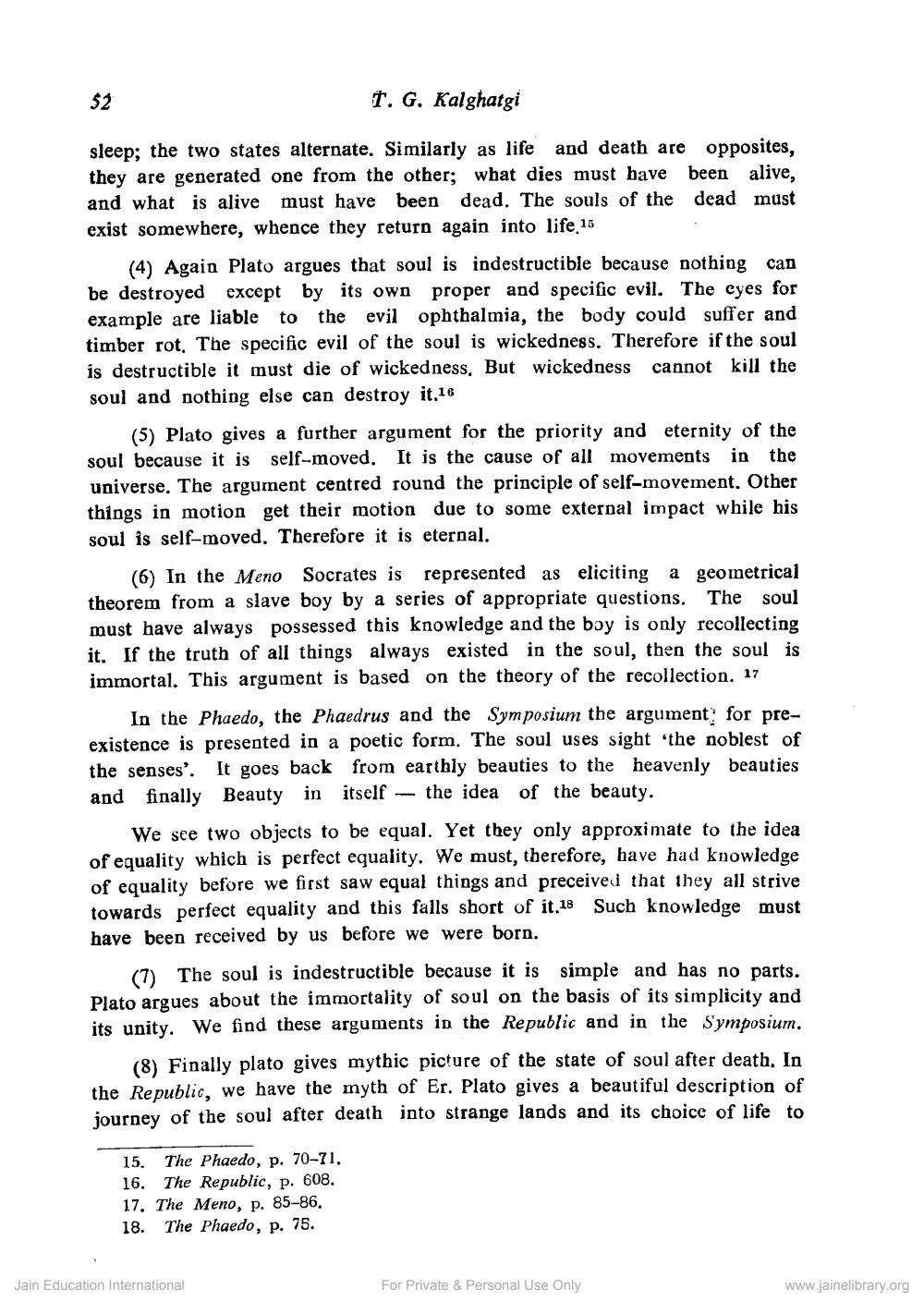________________
52
1. G. Kalghatgi
sleep; the two states alternate. Similarly as life and death are opposites, they are generated one from the other; what dies must have been alive, and what is alive must have been dead. The souls of the dead must exist somewhere, whence they return again into life.15
(4) Again Plato argues that soul is indestructible because nothing can be destroyed except by its own proper and specific evil. The eyes for example are liable to the evil ophthalmia, the body could suffer and timber rot. The specific evil of the soul is wickedness. Therefore if the soul is destructible it must die of wickedness, But wickedness cannot kill the soul and nothing else can destroy it.16
(5) Plato gives a further argument for the priority and eternity of the soul because it is self-moved. It is the cause of all movements in the universe. The argument centred round the principle of self-movement. Other things in motion get their motion due to some external impact while his soul is self-moved. Therefore it is eternal.
(6) In the Meno Socrates is represented as eliciting a geometrical theorem from a slave boy by a series of appropriate questions. The soul must have always possessed this knowledge and the boy is only recollecting it. If the truth of all things always existed in the soul, then the soul is immortal. This argument is based on the theory of the recollection. 17
In the Phaedo, the Phaedrus and the Symposium the argument for preexistence is presented in a poetic form. The soul uses sight 'the noblest of the senses'. It goes back from earthly beauties to the heavenly beauties and finally Beauty in itself -- the idea of the beauty.
We see two objects to be equal. Yet they only approximate to the idea of equality which is perfect equality. We must, therefore, have had knowledge of equality before we first saw equal things and preceived that they all strive towards perfect equality and this falls short of it.18 Such knowledge must have been received by us before we were born.
(7) The soul is indestructible because it is simple and has no parts. Plato argues about the immortality of soul on the basis of its simplicity and its unity. We find these arguments in the Republic and in the Symposium.
(8) Finally plato gives mythic picture of the state of soul after death, In the Republic, we have the myth of Er. Plato gives a beautiful description of journey of the soul after death into strange lands and its choice of life to
15. The Phaedo, p. 70-71, 16. The Republic, p. 608. 17. The Meno, p. 85-86. 18. The Phaedo, p. 75.
Jain Education International
For Private & Personal Use Only
www.jainelibrary.org




